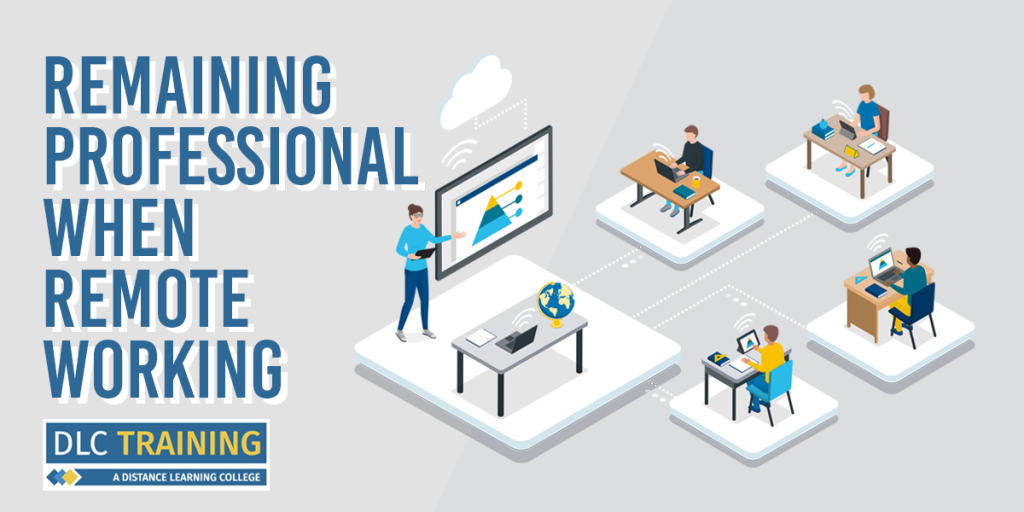Learn How Remote Professionals Shape the Future of Work
Learn How Remote Professionals Shape the Future of Work
Blog Article
Top Abilities Every Remote Professional Demands to Do Well
As remote job proceeds to improve expert landscapes, comprehending the vital skills that add to success in this setting is progressively vital. Reliable interaction, time administration, self-motivation, flexibility, and technological effectiveness are essential competencies that can substantially affect a remote professional's efficiency. Nonetheless, the subtleties of how these abilities adjoin and enhance overall performance frequently remain forgotten. Exploring these interrelations may expose understandings that can raise one's remote job experience to a new degree of efficiency. What particular strategies can be employed to grow these skills in a purposeful method?
Reliable Communication Skills
In today's remote job atmosphere, reliable communication abilities are necessary for success. The ability to communicate ideas plainly and pay attention actively is paramount when teams are dispersed across diverse locations. Solid interaction promotes cooperation, decreases misconceptions, and enhances performance.
A vital component of efficient communication is flexibility. Remote specialists need to have the ability to customize their communication styles to match varied target markets, whether through created records, video clip phone calls, or immediate messaging. Remote Professionals. Clearness in composed interaction is especially essential; succinct e-mails and well-structured records assist avoid complication and ensure that messages are recognized as planned
Additionally, active listening plays a critical role in remote communications. By showing listening and asking making clear questions, individuals can build rapport and depend on among group members, which is vital for preserving a natural workplace.
In addition, experience with various interaction tools is critical. Proficiency in video clip conferencing platforms, job monitoring software application, and joint applications not only boosts interaction performance yet additionally makes it possible for seamless synergy.

Time Monitoring Methods
How can remote professionals effectively manage their time in a setting loaded with diversions and completing concerns? One effective method is the Pomodoro Strategy, which involves damaging work into periods, traditionally 25 mins long, adhered to by time-outs. This method improves emphasis and decreases exhaustion, permitting professionals to maintain performance throughout the day.

Additionally, establishing clear objectives and target dates is important. Establishing weekly and everyday purposes cultivates responsibility and offers a sense of instructions. Utilizing electronic tools such as project monitoring software program can promote job tracking and enhance partnership among employee.
Self-Motivation Approaches
Self-motivation is the driving pressure that allows remote professionals to flourish in an adaptable workplace. To cultivate this necessary skill, individuals can carry out numerous reliable techniques that cultivate freedom and productivity.
First, establishing clear, possible goals is critical. By breaking bigger tasks into smaller sized, convenient milestones, remote workers can maintain focus and experience a sense of accomplishment as they progress. This approach not just boosts inspiration yet also gives a roadmap for daily activities.
Additionally, developing a dedicated work space can significantly influence self-motivation. An assigned area free from diversions helps in developing a professional way of thinking, signaling to oneself that it is time to function.
Consistently scheduling breaks is an additional crucial strategy. Short intermissions assist charge energy degrees and suffer focus, avoiding burnout and promoting continual efficiency throughout the day.
Additionally, leveraging positive support can enhance inspiration. Celebrating little success or gratifying oneself after completing jobs can produce a favorable feedback loop that motivates ongoing initiative.
Ultimately, embracing these self-motivation strategies encourages remote specialists to maintain high degrees of performance and contentment in their job, ensuring they stay engaged and efficient in their roles.
Adaptability and Adaptability
Flexibility and flexibility are essential characteristics for remote professionals navigating site link the ever-changing landscape of remote work. As companies increasingly welcome hybrid versions and moving top priorities, remote employees need to be prepared to get used to new scenarios with agility. This requires a frame of mind that welcomes change instead of withstands it.
Remote specialists often deal with varying time zones, varied group characteristics, and evolving job demands. Those that can pivot rapidly in feedback to these challenges are more probable to keep productivity and foster collaboration. Adaptability in organizing can additionally improve work-life equilibrium, allowing specialists to site link maximize their outcome while fitting individual commitments.
In addition, adaptability prolongs past mere routine adjustment; it entails a readiness to learn and take on brand-new tools or methods as they arise. Continuous knowing and openness to responses are crucial parts that equip remote employees to flourish in uncertain settings. By cultivating these abilities, remote professionals not only enhance their own efficiency yet additionally add favorably to their groups and companies.
Technical Efficiency
In the context of remote work, technical efficiency is progressively crucial as professionals rely upon different electronic devices to assist in project, collaboration, and communication management. Proficiency of software program applications, cloud platforms, and interaction tools is crucial for smooth procedures. This includes knowledge with video conferencing tools like Zoom or Microsoft Teams, task monitoring software such as Asana or Trello, and joint systems like Google Work area or Slack.
In addition, technical effectiveness encompasses understanding cybersecurity practices, making certain that sensitive information continues to be secured throughout digital interactions. Remote professionals should likewise be proficient at fixing usual technological concerns, as reliance on technology suggests that issues can arise suddenly. This ability not only reduces downtime but also adds to a much more effective operations.
In addition, remaining updated on arising modern technologies and fads in remote work can supply a competitive edge, allowing professionals to take advantage of new tools that improve efficiency. Generally, technical effectiveness is a fundamental ability that encourages remote employees to browse the electronic landscape successfully, guaranteeing they can contribute meaningfully to their groups and jobs. In a progressively digital world, this ability is not simply helpful; it is crucial for success.
Conclusion
In verdict, the effective navigation of remote job settings requires a comprehensive ability encompassing effective communication, skilled time management, robust self-motivation, and the capacity to adapt to changing circumstances. In addition, proficiency in appropriate technological tools is crucial for maintaining performance and cooperation. By cultivating these important skills, remote professionals can improve their performance, foster positive communications with colleagues, and ultimately thrive within the progressing landscape of remote work.
As remote work proceeds to improve expert landscapes, understanding the necessary skills that add to success in this setting is increasingly important.Flexibility and adaptability are critical characteristics for remote professionals navigating the ever-changing landscape of remote work. By cultivating these abilities, remote experts not only boost their very own efficiency yet also add positively to their companies and teams.
In the context of remote work, technical proficiency is significantly vital as professionals rely on numerous digital devices to assist in interaction, task, and collaboration management. By growing these important abilities, remote experts can enhance their performance, foster positive communications with coworkers, and ultimately grow within the developing landscape of try this out remote job.
Report this page